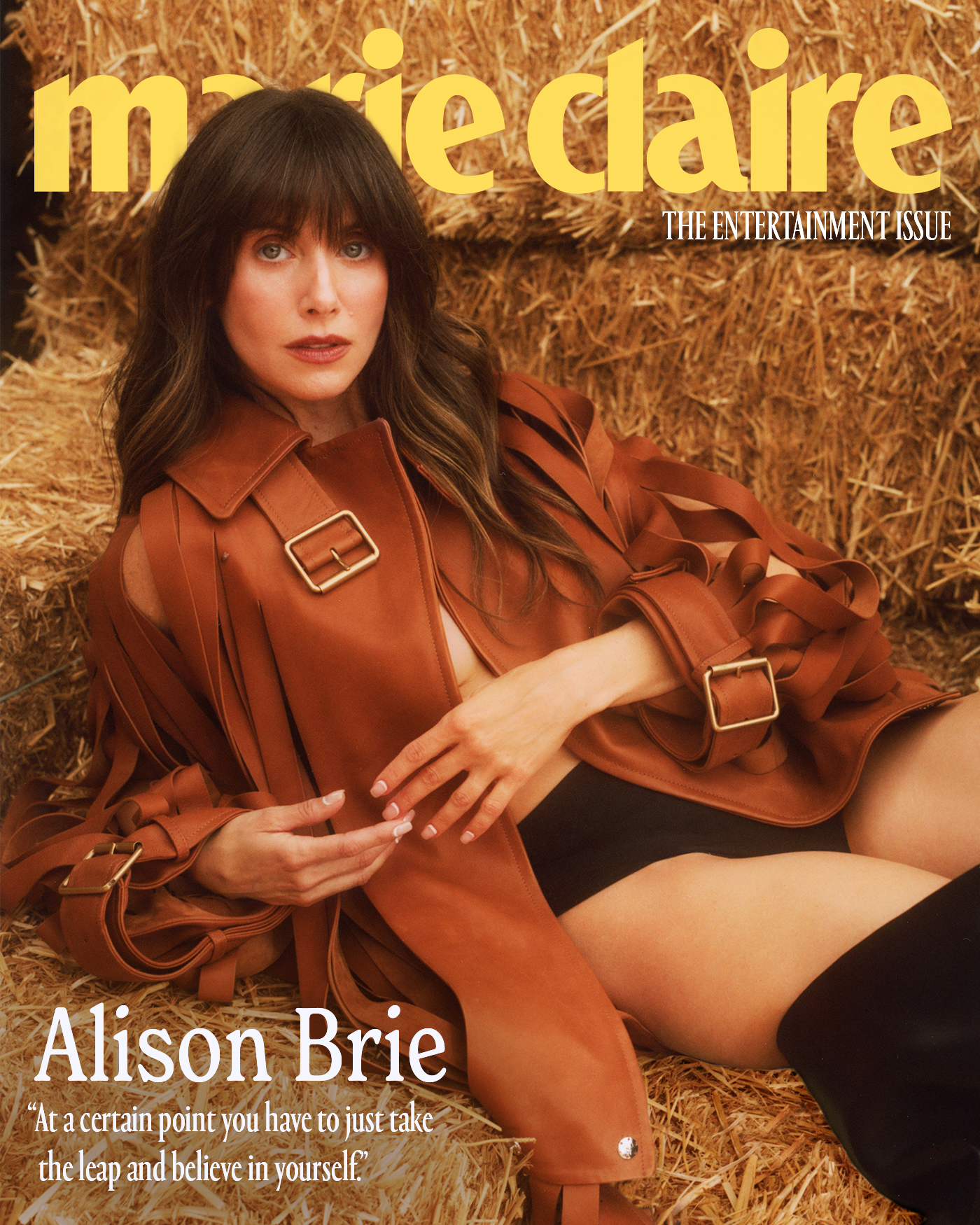Danielle Pistotnik Is Behind Your Last Reality Obsession—And the Next One Too
Blame the 29-year-old talent manager for your #MomTok addiction.
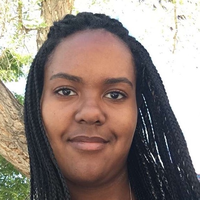
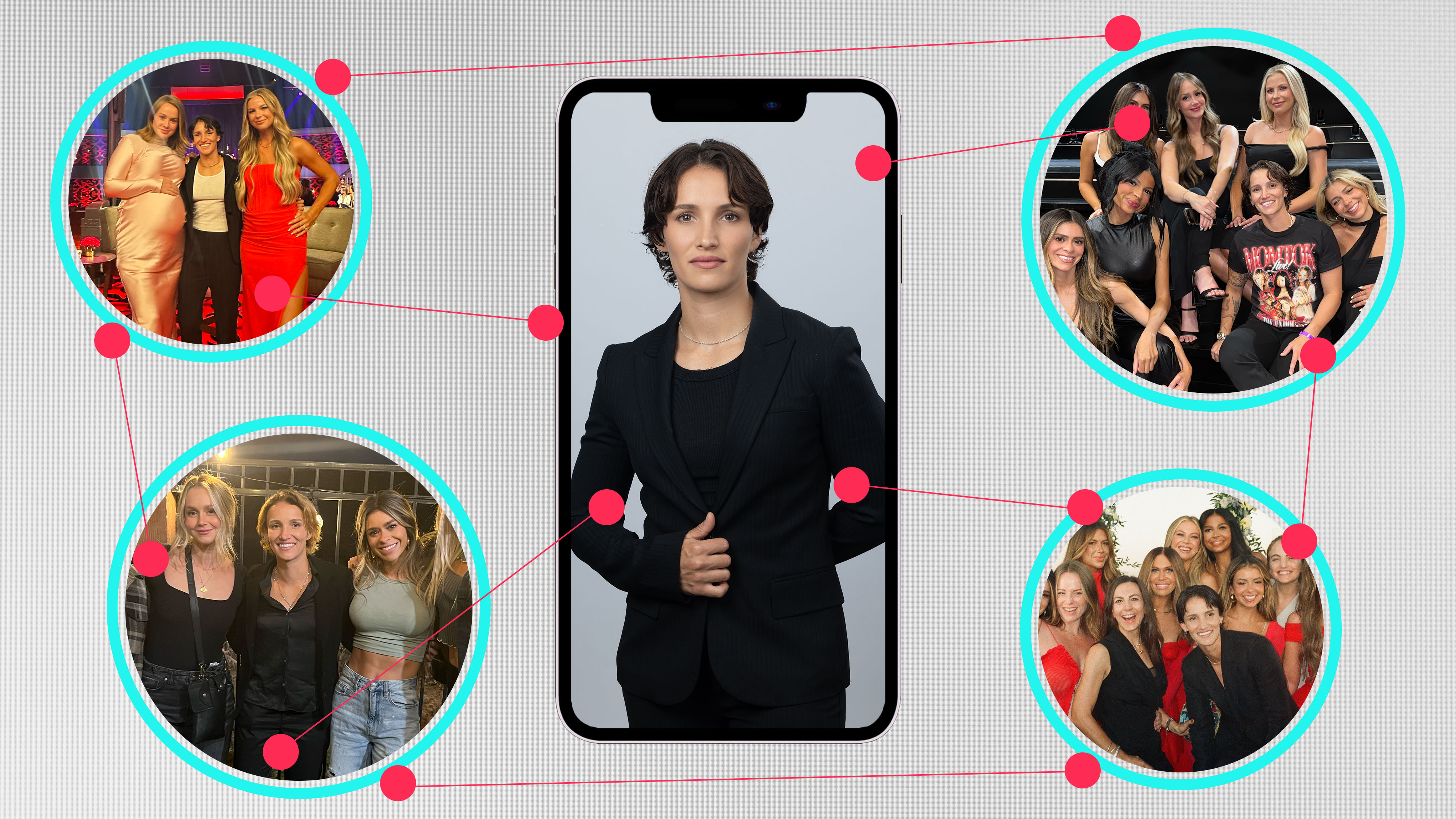
If it weren’t for Danielle Pistotnik, we wouldn’t have The Secret Lives of Mormon Wives. The talent manager saw the potential in the Utah-based women of #MomTok and turned their virality from a “soft swinging” scandal into a full-blown series—now Hulu's most popular reality show and a pop culture sensation. But Mormon Wives is the result of a vision Pistotnik's had for years.
During Pistotnik's 2021 hunt to build a client roster, she stumbled across a "story time" post from lifestyle influencer Mayci Neeley. After reaching out and hitting it off with her, she was referred to Taylor Frankie Paul, and eventually the rest of the #MomTok clan. Right away, Pistotnik could tell that their dynamic was perfect for reality TV—and that their posts only showed off a sampling of their “explosive” personalities offline.
“I liked them as people. I knew there was something bigger there," the now-executive producer tells me in her Beverly Hills office on a June afternoon. "I'm this Jewish gay woman from Los Angeles talking to these Mormons from Utah, and it feels like people I grew up with...We all have girlfriends who are like, 'Oh my God, we need a reality show about our lives,’ and it's like, well, everyone thinks that way. So when I met them, and my thought was, These girls should have a reality show, it was significant.”
Attending high school and college in the 2010s, Pistotnik noted the crossover of social media and celebrity; already, BuzzFeed creators and Beauty YouTubers were becoming brands in their own right. A decade later, Hollywood is learning what Pistotnik has known for years: Spend enough time online, and you'll find the future of pop culture.
To this day, Pistotnik is chronically online. Fourteen hours of screen time per day, a feed of “dudes making sandwiches, people lifting heavy weights, and for some reason, a shirtless photo of Nathan Fielder on a heart cake"—and, of course, everything to do with Mormon Wives. Her constant scrolling is what success looks like in entertainment's next frontier, where influencers lead the cultural touchpoints everybody's talking about.
On the heels of The Secret Lives of Mormon Wives season two's success and with a third installment on the way, Pistotnik discusses pitching the reality show after years of no’s, filming in Utah, and the digital creators taking over Hollywood.
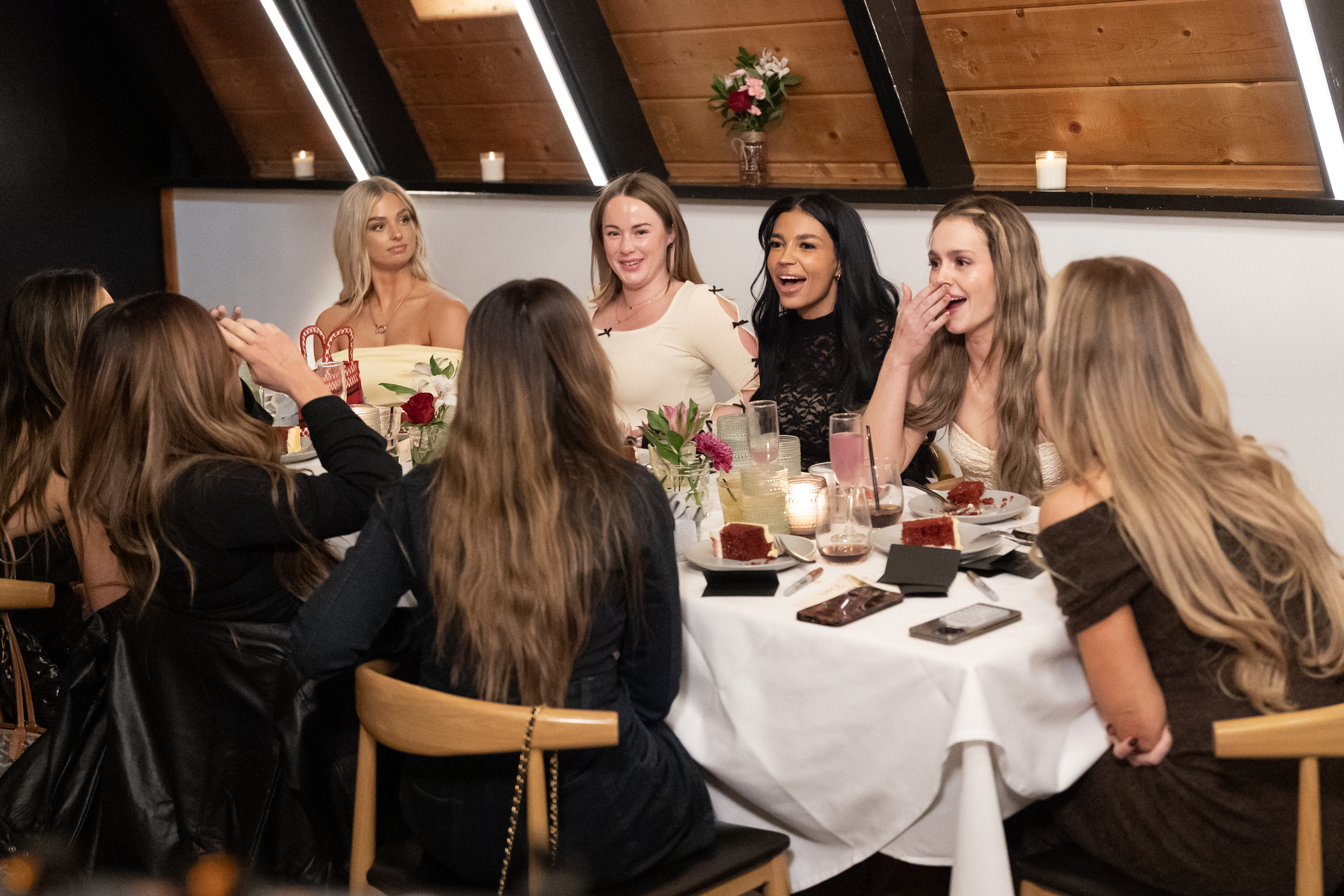
The stars of The Secret Lives of Mormon Wives at a #MomTok dinner.
In recent years, there has become a pipeline of reality stars becoming influencers off their shows. What made you consider the opposite?
Get exclusive access to fashion and beauty trends, hot-off-the-press celebrity news, and more.
When I started, it was so obvious to me that [digital creators] were the future of entertainment, and that people were just not catching on. My thought was like, These are the people that are going to drive viewers to television. [Why] are we not utilizing it? Eventually, they did, but the first four years I did this, if you wanted to bring an influencer into a traditional project, you got laughed out of the room. I think it was for no other reason than status quo and egos, and a lack of comfort in adapting to this new world. But then, slowly but surely, these tiny steps started happening. I think podcasting has a lot to do with it. We watched podcasting take over mainstream news media, and that was a really good first example of: This is the future.
These people have built-in audiences. It's so expensive to make shows, especially in L.A., so why would you not take these people that will automatically give you viewers, who don't cost a hundred million dollars to cast in your movie because they're not Zendaya? And I was right.
How do you find creators?
With the nature of my job, I'm chronically online. It's a mix of that, plus being in this industry and hearing what people want or who people are having conversations about. The combination of those things leads you in the right places.
SLOMW is your first time working in unscripted TV. Did you have any concerns about what that work would entail?
We got lucky with the Hulu side and Jeff Jenkins Productions, who are partners on this. If a girl's crying and has a bad day, it's like, Go home. Get a massage. We'll talk about this tomorrow. If their mental health is in danger, if they are in physical danger, if we're worried about anything, we're not poking the bear. We're like, Let's take a minute. If my coordinator was having a hard time, I would give her a week off work. We all get along really well. It's like a party. When we're on set, we're all going to the one bar in Utah that closes at 10:00 p.m. and having a good time.
What was the most unbelievable day you’ve had on set so far?
Oftentimes, the cameras start rolling and you don't think you're going to get anything, and you get the most insane scene of your life. It's always unexpected. Sometimes you question, Is it even worth getting cameras out? Is it even going to be anything? And then you get the scene that makes the episode, and none of it is scripted. That's the thing people don't understand; everyone says, ‘Reality shows aren't real.’ This is 100 percent real, zero-scripted. I don't think any of us could have expected everything to organically blow up this much.
I'm this Jewish gay woman from Los Angeles talking to these Mormons from Utah, and it feels like people I grew up with.
Some critics argued that season two felt different from the first in the sense that the cast became more aware of the need to manufacture drama, even if it didn’t seem natural. How will the show continue balancing that?
There are a lot of meta moments in the show because we break the third wall. Half of the time, we're talking about the brand deals and negotiations, and all the things with Hulu. As opposed to a lot of shows where someone disappears or someone acts a certain way because they're protesting [something off-screen], we're addressing things head-on. So much of the drama of a reality show is the deals and money, the behind-the-scenes of, she got this and she got this. A lot of times, it goes unaddressed, and then people disappear and things fizzle out. So we discuss it, and I think that’s the best way to keep things moving forward.
I also think we empower women to have salary transparency and talk about their real experiences, especially in entertainment, where no one actually knows who gets what or what's realistic, and no one talks to each other about it. [By talking about it], the audience feels like, Okay, well she's not here because of this, and they're fighting because of this, instead of some mystery reason that everyone can assume is behind the scenes.
One thing about this cast is [that] there are issues and a lot of animosity at times, but they know that they're coworkers. No matter what goes on between the two of them, they're like, 'Well, we work together and we will show up to work together.' That's never been an issue. They're very professional.
In previous interviews, you’ve emphasized that as you were developing the show, you made sure that it wouldn’t be disrespectful to Mormonism. How do you balance that respect with the inherent need for reality TV to be sensational?
We're not manufacturing this idea of sensationalized religion, because the show isn't about the religion. It's about these people who grew up in the religion. As long as we stay true to the subject of the show is this group of women, not the Mormon church, then that will never be an issue. The second that we start trying to dive into the church, we're going to completely lose the plot of what the show is about, and all the sincerity is going to completely go out the window.
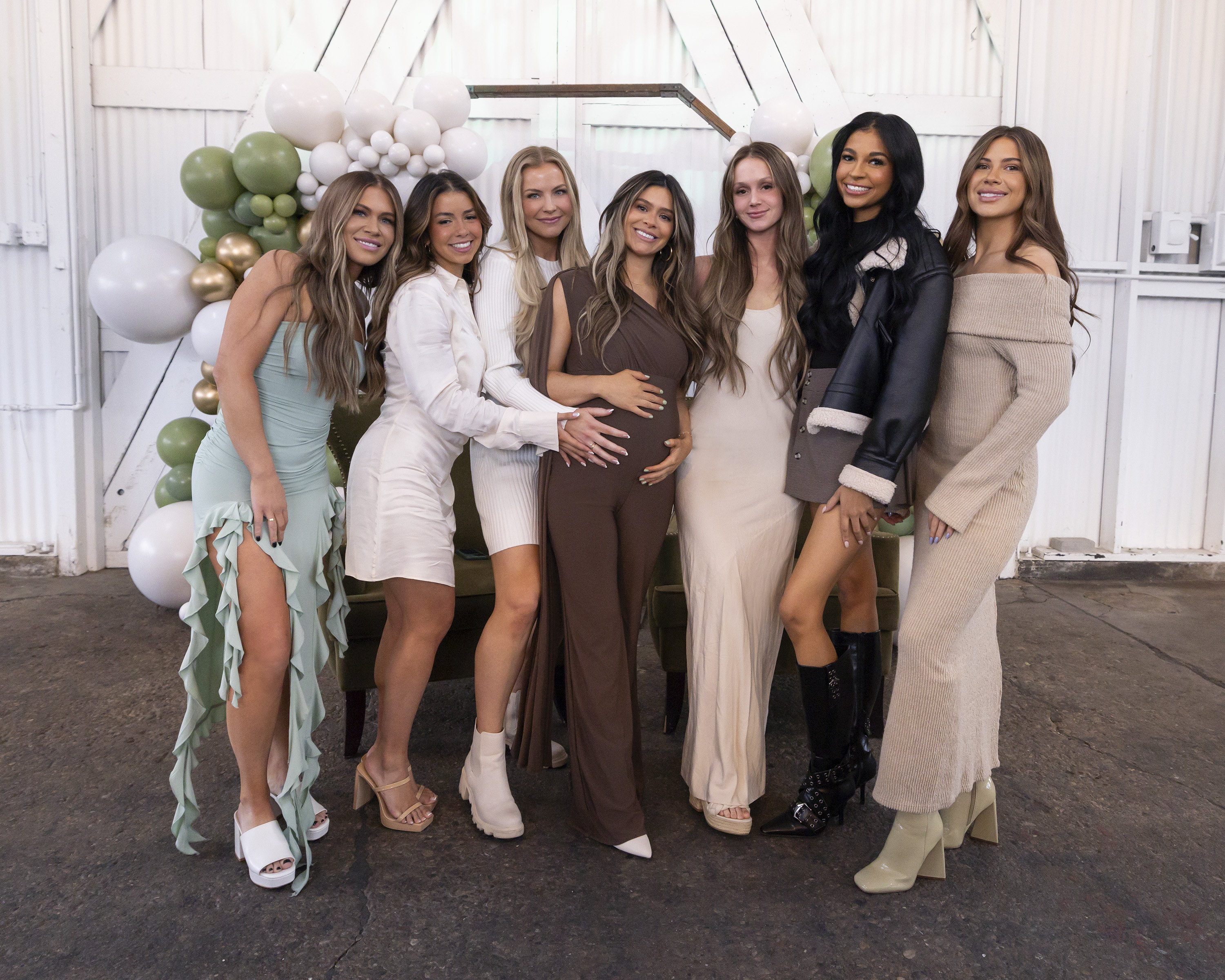
Jessi Ngatikaura, Jennifer Affleck, Mayci Neeley, Taylor Frankie Paul, Mikayla Matthews, Layla Taylor, and Demi Engemann pose for a group photo.
Influencers have made gains in the traditional media space, but there still seems to be a level of spectacle towards them. When do you see the transition from influencer to traditional celebrity becoming normalized?
Right now. Turn on your TV and look at the four biggest shows. It's like The Secret Lives of Mormon Wives, Benito Skinner's Overcompensating, Brian Jordan Alvarez's English Teacher, and then Adults on Hulu. Everyone woke up in the past year and was like, We have to do this.
I don't think a lot of people become influencers now because they want to be social media stars. I think we're seeing people who are writers, actors, directors, standup comics, and they realize, I could get an agent and go to auditions and get spit in the face, get a waiter job, do this, this, and this. Or, I can showcase myself online, build an organic audience, and have some leverage to then take that audience into traditional media. I think that's a better path. One, it shows initiative. Two, you have a proof of concept. Networks are not having to take risks anymore because they see that people are so engaged with this work.
How does the rise of creator-influencers affect your job, since you’ve worked more often with traditional influencers?
There's a nature that everyone who does my job has, where you're constantly searching for novelty and excitement and something different. I think people become managers, to be honest, because we couldn’t have normal jobs. I don't think I could sit at a desk and work from nine to five and do the same thing every day. I think that our brains are wired to want to close deals and try something new, and outdo the thing you did before, because then you're not going to get that beautiful dopamine hit of success anymore. So, for me, I don't think it's easier or harder. I am just more excited about it. I love this world. It's so much more fun.
This interview has been edited and condensed for clarity.
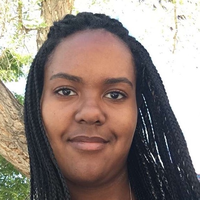
Quinci LeGardye is a Culture Writer at Marie Claire. She currently lives in her hometown of Los Angeles after periods living in NYC and Albuquerque, where she earned a Bachelor’s degree in English and Psychology from The University of New Mexico. In 2021, she joined Marie Claire as a contributor, becoming a full-time writer for the brand in 2024. She contributes day-to-day-content covering television, movies, books, and pop culture in general. She has also written features, profiles, recaps, personal essays, and cultural criticism for outlets including Harper’s Bazaar, Elle, HuffPost, Teen Vogue, Vulture, The A.V. Club, Catapult, and others. When she isn't writing or checking Twitter way too often, you can find her watching the latest K-drama, or giving a concert performance in her car.
